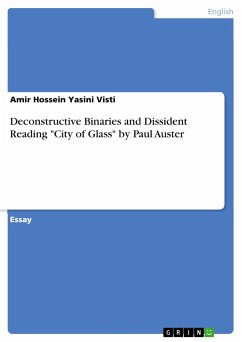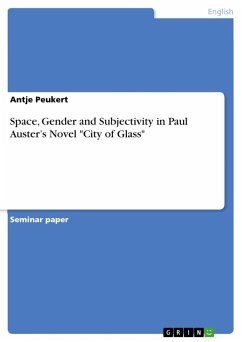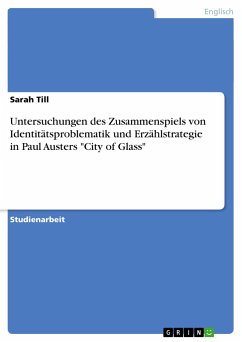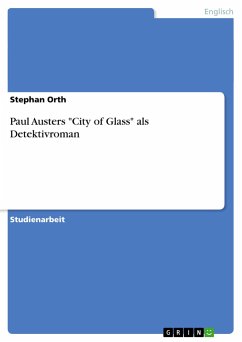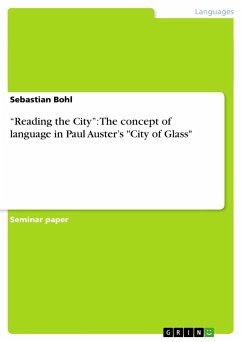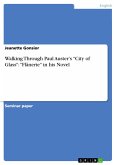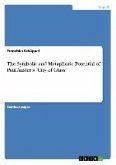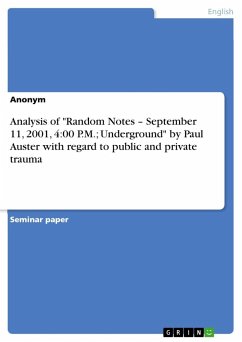Essay from the year 2014 in the subject English Language and Literature Studies - Literature, University of Tehran, language: English, abstract: The aim of the present paper is to unveil how a "dissident" reading can be perceived by a deconstructive investigation in the novel "City of Glass" by Paul Auster. As the matter of fact, the story entails some binaries which their clashes serve to conceptualize the term "dissidence" as observed in the approach of cultural materialism. Cultural materialists argue that literature does not reflect only one cultural formation and is able to invoke other ideologies and subcultures. To put in other words, while a literary work may serve to practice the dominant ideology, it may produce a contrary dissident reading. This possibility mostly is based on the inner contradictions of any literary text. This is the common ground of cultural materialists and post-structuralist deconstructionists although there are many differences between the two sides such as the former opposes the latter, arguing that texts are not created in the void. In fact, the inner contradictions, which the theories and principles of cultural materialism is rested on, can be realized as those dualities which the deconstructionists apply in their practices. They imply that no transcendental meaning is present in the verbal game of a work of literature as the cultural materialists deny one dominant culture. In "City of Glass" Paul Auster has skillfully exhibited such a verbal game to represent his own concerns regarding the subject of the identity caught in the binaries of "author-reader", "fact-fiction", "solitude-loneliness" and "city-space", leading to a "dissident" reading which is potentially opposed and threatening to those social oppressive norms which the protagonist "Quinn" is suffered.
Hinweis: Dieser Artikel kann nur an eine deutsche Lieferadresse ausgeliefert werden.
Hinweis: Dieser Artikel kann nur an eine deutsche Lieferadresse ausgeliefert werden.
